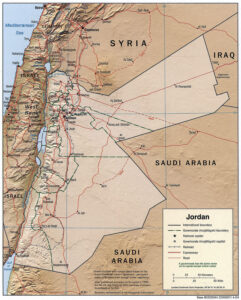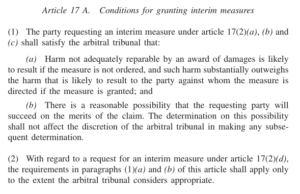Arbitral awards are final and binding. In certain circumstances, however, they can be challenged or annulled through judicial proceedings. The annulment of arbitral awards (also known as “setting aside” or “vacatur”) refers to the legal process by which a court sets aside or nullifies an arbitration award that has been issued by an arbitral tribunal. […]
UNCITRAL Model Law
Document Production in International Arbitration
Document production is one of the most controversial yet essential steps in international arbitration. Since cases are generally decided based on documents rather than oral testimony, document production can be a powerful tool for discovering evidentiary material crucial to winning an arbitration.[1] It is not surprising that arbitral proceedings commonly include a document production phase. […]
The Standard of Proof in Arbitration
In The Burden of Proof in Arbitration, a distinction was made between the burden of proof, defined as “the duty of proving a disputed assertion or charge”, and the standard of proof, which “determines the level of certainty and the degree of evidence necessary to establish proof in a criminal or civil proceeding”, according to […]
International Commercial Arbitration in Ireland
Ireland is legally well-equipped to prosper as a seat for international arbitration: it offers a familiar applicable law based on the 2006 UNCITRAL Model Law (i.e., the Irish Arbitration Act 2010), a court system supportive of arbitration, an English-speaking, common law legal system similar to that of England and, as a signatory to the New […]
Pre-Conditions to Arbitration Are A Question of Admissibility: Hong Kong Decision C v D [2022] HKCA 729
In a recent decision, C v D [2022] HKCA 729, the Hong Kong Court of Appeal held that pre-conditions to arbitration are a question of admissibility, instead of jurisdiction. Hence, it refused to set aside a partial arbitral award for lack of jurisdiction. Multi-tiered arbitration clauses, containing pre-conditions to arbitration, such as mandatory cooling-off periods, […]
International Arbitration in Jordan
International arbitration in the Hashemite Kingdom of Jordan (“Jordan”) is governed by Law No. 31 of 2001 (the “Arbitration Law”). The Jordanian Arbitration Law has been amended several times since its entrance into force on 16 July 2001. The Jordanian Arbitration Law is largely based on the Egyptian Arbitration Act No. 27 of 1994 (“Egyptian […]
International Arbitration in Kazakhstan
International Arbitration in Kazakhstan is governed by the Law on Arbitration (Law No. 488-V) dated 8 April 2016 (the “Law on Arbitration”). The Law on Arbitration was amended twice since its entrance into force on 19 April 2016, the first time in March 2017 (Article 9.5) and the second time in January 2019, when significant […]
Provisional Measures in International Arbitration
Provisional measures can be an effective instrument to protect parties’ rights in arbitration. Although there is no widely accepted definition, provisional measures are, in general terms, remedies or relief whose purpose is to safeguard parties’ rights. In international arbitration, institutional rules are generally silent as to the standards and principles for the granting of provisional […]
Arbitration in Bahrain
Bahrain updated its arbitration law not long ago. Legislative Decree No. 9 of 2015 (the “BAA”) has incorporated the Model Law of the United Nations Commission for International Trade Law (the “Model Law“) in its entirety and included some additional provisions regarding the parties’ representation (Article 6 of the BAA) and arbitrators’ liability (Article 7 […]








